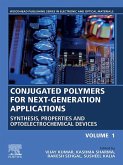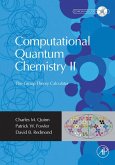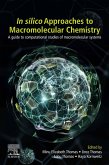Density Matrix Renormalization Group (DMRG)-based Approaches in Computational Chemistry outlines important theories and algorithms of DMRG-based approaches and explores their use in computational chemistry. Beginning with an introduction to DMRG and DMRG-based approaches, the book goes on to discuss the key theories and applications of DMRG, from DMRG for semi-empirical and ab-initio quantum chemistry, to DMRG in embedded environments, frequency spaces and quantum dynamics. Drawing on the experience of its expert authors, sections detail recent ideas and key developments, providing an up-to-date view of current developments in the field for students and researchers in quantum chemistry.
- Provides an expertly-curated, consolidated overview of research in the field
- Includes exercises that support learning and link theory to practice
- Outlines key theories and algorithms for computational chemistry applications
Dieser Download kann aus rechtlichen Gründen nur mit Rechnungsadresse in A, B, BG, CY, CZ, D, DK, EW, E, FIN, F, GR, HR, H, IRL, I, LT, L, LR, M, NL, PL, P, R, S, SLO, SK ausgeliefert werden.









